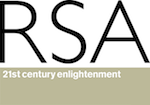House of Lords debate: integrating arts is crucial
|
Narrowing the gap between advantaged and disadvantaged children undoubtedly has an effect on social mobility later in life. However, the most effective way to narrow this gap is hotly debated, most recently so in the House of Lords.
The House of Lords debate was instigated by Baroness Massey, who in her opening statement declared “A key issue for children from birth onwards is developing confidence, self-esteem and resilience.”
Baroness McIntosh, an Artis Adviser, delivered a persuasive speech that contributed to the debate. She highlighted the importance of integrating the arts into the curriculum, and not just focussing on STEM subjects, as keys to success and therefore social mobility. You can read her impassioned speech below:
On 10 November last year, the Secretary of State for Education made a speech at the launch of the Your Life campaign in which she said the following:
“Even a decade ago, young people were told that maths and the sciences were simply the subjects you took if you wanted to go into a mathematical or scientific career, if you wanted to be a doctor, or a pharmacist, or an engineer”.
I am not absolutely sure that that is true but that is what she said. She went on:
“But if you wanted to do something different, or even if you didn’t know what you wanted to do, and let’s be honest-it takes a pretty confident 16-year-old to have their whole life mapped out ahead of them-then the arts and humanities were what you chose. Because they were useful for all kinds of jobs”.
So far, so good, you might think, but then she went on:
“Of course now we know that couldn’t be further from the truth, that the subjects that keep young people’s options open and unlock doors to all sorts of careers are the STEM subjects: science, technology, engineering and maths”.
Those remarks are deeply disappointing and wrong on so many counts. As we know, children are capable, if they are encouraged, supported and educated thoughtfully from early on, of learning many different things in many different ways. The flexibility of mind that comes from a broadly based education is exactly what employers look for in all fields. I thought that we had left the idea of two cultures far behind but apparently not. It is profoundly unhelpful for such simplistic distinctions to be made.
Lots of us will have had the pleasure, albeit occasionally a mixed one, of taking young children to arts events and/or of just sitting on the sofa with them reading, or watching films. We will have observed their joy and their absorption, and the way in which that kind of experience moves them on. They find new language, new questions to ask and new ways of thinking about the world-even the very little ones do. However, not all children are lucky enough to get this kind of stimulation as a natural part of their family lives, which is why it is so important that we understand and value how it can be incorporated into other areas, particularly school.
I want to mention briefly one organisation which is contributing magnificently to this important work. Artis Education has been in business for 10 years, and nearly all its schools are in the maintained sector. I was until recently a director and Lord Bichard was involved in setting it up. Artis trains specialists from performance backgrounds to deliver inspirational cultural enrichment which can be, and often is, directly related to national curriculum requirements. Its programmes are of particular benefit in raising levels of confidence and self-esteem in young children, and are recognised by head teachers and other educationalists for contributing to increased concentration, improved behaviour and overall eagerness to learn.
I recommend the Artis website; it is an inspiring read. On it you will find, for example, a wonderful blog from Lord Bichard, entitled “I am not an artist”, which gives 10 excellent, evidence-based reasons why arts education is so important for young children, for society and for the economy. You will also find details of Artis’s 10 tools for transforming the new science curriculum, which set out how teachers can use arts-based techniques to address science topics. Artis says:
“This sense of wonder and fascination with the surrounding world is as important in performing arts as it is in science, and the two disciplines have many points in common”.
Well, who knew? How very true and how very obvious, but not, apparently, to the Secretary of State.
This is a slightly abridged version of Baroness McIntosh’s contribution to Baroness Massey’s debate; the full debate can be read online at the Hansard website: http://www.publications.parliament.uk/pa/ld201415/ldhansrd/text/150108-0001.htm#15010867000819
Genista (Jenny) McIntosh has held a number of senior positions in major arts organisations. She was Executive Director of the Royal National Theatre between 1990 and 1996 and again between 1997 and 2002, and was Chief Executive of the Royal Opera House in 1997. She was Principal of the Guildhall School of Music & Drama from 2002 to 2003. Between 1972 and 1984, and again between 1986 and 1990, she held a number of posts at the Royal Shakespeare Company. She was a founder Trustee of NESTA (National Endowment for Science, Technology and the Arts) from 1998 to 2005 and currently serves on the Boards of the Royal Shakespeare Company, the Roundhouse Trust, the National Opera Studio and Southbank Sinfonia.
Genista holds honorary doctorates from the University of York, the University of Middlesex and City University and received an Honorary Fellowship from Goldsmiths College, University of London in 2003. She is also a Fellow of the Royal Society of Arts. In 1999 she was created a Life Peer, taking the title Baroness McIntosh of Hudnall, and now devotes most of her time to her work in the House of Lords.
|
04 Mar 2015 |
















